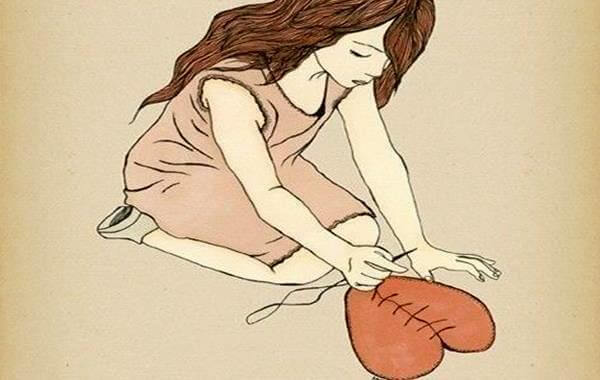How To Escape the Cage Built by an Emotional Predator

Throughout our lives, we build relationships that invite us to give the best of ourselves, but we can also find ourselves immersed in devastating relationships that consume us, even ending up destroying us by locking us in cages built by an emotional predator.
Just as there are predatory animals in nature that annihilate others that are weaker than them, in humans, we can run into a similar phenomenon. These emotional predators do not feed on weaker people, but instead they feed on those possessing a gift that they envy.
Profile of an emotional predator
The life of an emotional predator is a strategy game with selfish goals. Although each emotional predator has his or her peculiarities, they all seem to share a series of characteristics:
They are masters of disguise
An emotional predator is a master of disguise that can be spread across all ages, genders, and social classes, their strategies being the most effective in the closest personal relationships, like those with a partner. Just as a chameleon can transform its appearance to fit the colors of its surroundings, a predator also has this ability to adapt such that it does profound harm to the victim without the people around them noticing it.
They absorb energy from others
They are people who thirst for the energy that others possess. Immersed in a universe of hate and resentment towards those who are capable of feeling and shining.
Their victims are kind, joyful, honest people with great vitality and enthusiasm, those who display characteristics that the emotional predator lacks and envies because they represent everything that he is incapable of being. This is why they feel the need to tear down, annihilate, humiliate, and destroy anyone who reminds them of this.
Emotional predators find themselves immersed in universes of hate and resentment towards people capable of feeling and who are full of live.

They are incapable of feeling
The main characteristic of an emotional predator is their inability to come in contact with their feelings, caused by a lack of emotional connection between their mind and their emotions. This lack of attunement usually starts from a young age, which is why the predator has adapted to it and does not see it as a dysfunction.
Many of these disconnects find their origin in childhood, when they felt overwhelmed by their own feelings and disconnected from them as a defense mechanism. So their emotions disappeared from the world and they were left with intellectualization, the same logic under which it is admitted that people can be treated as objects in order to achieve our goals.
They reject themselves
Emotional predators feel a strong rejection of and aversion to themselves due to their inability to feel, hiding behind a mask so that they are not revealed.
They feel disoriented, different, and in many cases, like the victims of their destiny. In some way, they understand that the way in which they treat other people is simply a replication of the treatment that they have received.
They are great actors
They do not feel, but they put on a show of it. Their strategy is premeditated and sneaky, walking unnoticed among all of those who are around them.
First they seduce their victims through closeness and the passage of time, but later on, they manage to influence them and finally to end up dominating them, depriving them of all freedom and autonomy. A complex and silent process in which they create a spider web strategy to trap their victims.
How do we identify that we have a relationship with an emotional predator?
A victim can maintain a relationship with an emotional predator for a very long time without ever noticing. Sometimes, they do not even know it until they are emotionally exhausted and feel that they have lost the entire essence of who they once were.
In order to figure out if you are involved in this kind of toxic relationship, be it with your partner, a family member or friend, or even in a working environment, it is good for you to reflect on the following questions:
- Do you feel isolated? Have you lost contact with your loved ones? Do you have trouble relating to your family and friends?
- Have your values and ways of thinking changed? Do you think these changes have made you distance yourself from the person you used to be? Do you believe you have lost your identity?
- How much do you value yourself? Do you feel that you are full of guilt? Are you afraid to express yourself or give your opinion?
If you find yourself isolated with no emotional support to turn to, your values have changed, you are afraid to express yourself, and your vision of yourself is negative, you may have a relationship with an emotional predator.

Escaping the emotional cage
Escaping the grips of an emotional predator is not a simple task, particularly because fear, insecurity, and guilt have managed to take up residence within the victim in a very profound way. The victim is no longer the person they used to be and will have to restructure their thoughts and emotions.
Freedom from this situation is made up, above all else, of a slow process in which professional help is inevitable in order to recover.
Being aware is the first step to freeing yourself. In order to escape from this trap, the victim has to notice it. It’s possible they don’t recognize the situation as dangerous or the iron bars of guilt may even be too strong to let them see a way out.
The victim has to identify the emotional predation process that is causing them to feel responsibility and guilt over the conflict so that they can then put all their energy into rescuing themselves. They have to understand that they must protect themselves and for this, they must stop justifying the aggressor.

Once the person is aware of the situation in which they are trapped, looking for a support network is fundamental. Particularly getting back into contact with those people that they used to have strong emotional connections to and which the predator cut off. These people can be the emotional support that the person needs to help them free themselves from their cage.
Going to a specialist becomes indispensable in these cases. The victim tends to have difficulties escaping and when they do, they realize that they are no longer the same person. They accumulate immense suffering along with feelings of guilt and fear.
A psychologist can help them along the path to finding themselves again and in reestablishing their well being and personal autonomy.
It can even be necessary for authorities to intervene in order to resolve this kind of conflict. However, there tend to be complications when they are asked for proof that shows the facts, since the humiliation, putdowns, and offenses are difficult to demonstrate. For this, it is suggested that the victims keep all kinds of documents and archives that could be recognized as proof.
Throughout our lives, we build relationships that invite us to give the best of ourselves, but we can also find ourselves immersed in devastating relationships that consume us, even ending up destroying us by locking us in cages built by an emotional predator.
Just as there are predatory animals in nature that annihilate others that are weaker than them, in humans, we can run into a similar phenomenon. These emotional predators do not feed on weaker people, but instead they feed on those possessing a gift that they envy.
Profile of an emotional predator
The life of an emotional predator is a strategy game with selfish goals. Although each emotional predator has his or her peculiarities, they all seem to share a series of characteristics:
They are masters of disguise
An emotional predator is a master of disguise that can be spread across all ages, genders, and social classes, their strategies being the most effective in the closest personal relationships, like those with a partner. Just as a chameleon can transform its appearance to fit the colors of its surroundings, a predator also has this ability to adapt such that it does profound harm to the victim without the people around them noticing it.
They absorb energy from others
They are people who thirst for the energy that others possess. Immersed in a universe of hate and resentment towards those who are capable of feeling and shining.
Their victims are kind, joyful, honest people with great vitality and enthusiasm, those who display characteristics that the emotional predator lacks and envies because they represent everything that he is incapable of being. This is why they feel the need to tear down, annihilate, humiliate, and destroy anyone who reminds them of this.
Emotional predators find themselves immersed in universes of hate and resentment towards people capable of feeling and who are full of live.

They are incapable of feeling
The main characteristic of an emotional predator is their inability to come in contact with their feelings, caused by a lack of emotional connection between their mind and their emotions. This lack of attunement usually starts from a young age, which is why the predator has adapted to it and does not see it as a dysfunction.
Many of these disconnects find their origin in childhood, when they felt overwhelmed by their own feelings and disconnected from them as a defense mechanism. So their emotions disappeared from the world and they were left with intellectualization, the same logic under which it is admitted that people can be treated as objects in order to achieve our goals.
They reject themselves
Emotional predators feel a strong rejection of and aversion to themselves due to their inability to feel, hiding behind a mask so that they are not revealed.
They feel disoriented, different, and in many cases, like the victims of their destiny. In some way, they understand that the way in which they treat other people is simply a replication of the treatment that they have received.
They are great actors
They do not feel, but they put on a show of it. Their strategy is premeditated and sneaky, walking unnoticed among all of those who are around them.
First they seduce their victims through closeness and the passage of time, but later on, they manage to influence them and finally to end up dominating them, depriving them of all freedom and autonomy. A complex and silent process in which they create a spider web strategy to trap their victims.
How do we identify that we have a relationship with an emotional predator?
A victim can maintain a relationship with an emotional predator for a very long time without ever noticing. Sometimes, they do not even know it until they are emotionally exhausted and feel that they have lost the entire essence of who they once were.
In order to figure out if you are involved in this kind of toxic relationship, be it with your partner, a family member or friend, or even in a working environment, it is good for you to reflect on the following questions:
- Do you feel isolated? Have you lost contact with your loved ones? Do you have trouble relating to your family and friends?
- Have your values and ways of thinking changed? Do you think these changes have made you distance yourself from the person you used to be? Do you believe you have lost your identity?
- How much do you value yourself? Do you feel that you are full of guilt? Are you afraid to express yourself or give your opinion?
If you find yourself isolated with no emotional support to turn to, your values have changed, you are afraid to express yourself, and your vision of yourself is negative, you may have a relationship with an emotional predator.

Escaping the emotional cage
Escaping the grips of an emotional predator is not a simple task, particularly because fear, insecurity, and guilt have managed to take up residence within the victim in a very profound way. The victim is no longer the person they used to be and will have to restructure their thoughts and emotions.
Freedom from this situation is made up, above all else, of a slow process in which professional help is inevitable in order to recover.
Being aware is the first step to freeing yourself. In order to escape from this trap, the victim has to notice it. It’s possible they don’t recognize the situation as dangerous or the iron bars of guilt may even be too strong to let them see a way out.
The victim has to identify the emotional predation process that is causing them to feel responsibility and guilt over the conflict so that they can then put all their energy into rescuing themselves. They have to understand that they must protect themselves and for this, they must stop justifying the aggressor.

Once the person is aware of the situation in which they are trapped, looking for a support network is fundamental. Particularly getting back into contact with those people that they used to have strong emotional connections to and which the predator cut off. These people can be the emotional support that the person needs to help them free themselves from their cage.
Going to a specialist becomes indispensable in these cases. The victim tends to have difficulties escaping and when they do, they realize that they are no longer the same person. They accumulate immense suffering along with feelings of guilt and fear.
A psychologist can help them along the path to finding themselves again and in reestablishing their well being and personal autonomy.
It can even be necessary for authorities to intervene in order to resolve this kind of conflict. However, there tend to be complications when they are asked for proof that shows the facts, since the humiliation, putdowns, and offenses are difficult to demonstrate. For this, it is suggested that the victims keep all kinds of documents and archives that could be recognized as proof.
This text is provided for informational purposes only and does not replace consultation with a professional. If in doubt, consult your specialist.







